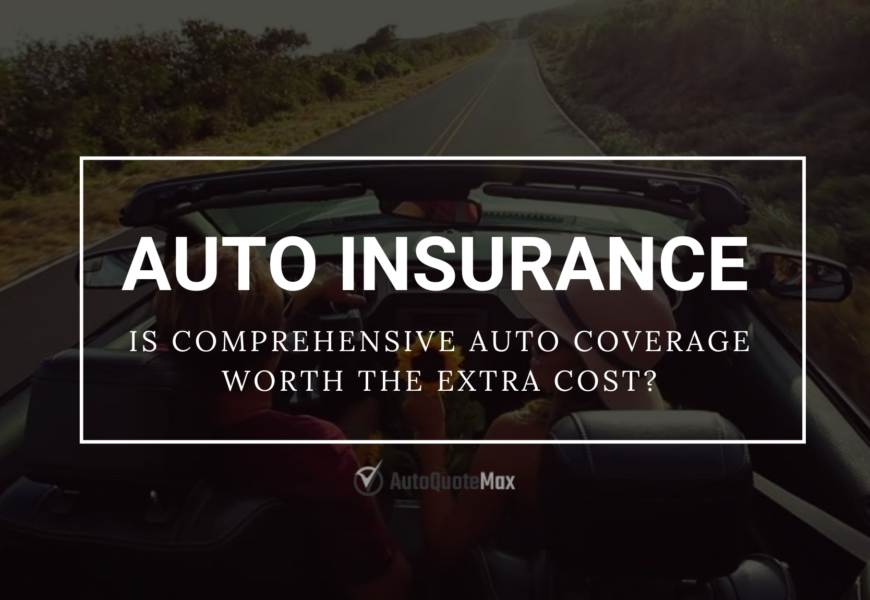When deciding on the level of auto insurance coverage, many drivers face the dilemma of whether to opt for comprehensive auto coverage or stick to the basic liability and collision options. Comprehensive coverage, often viewed as an add-on, can significantly increase the cost of insurance premiums. To determine if comprehensive auto coverage is worth the extra cost, several factors need to be considered, including the value of the vehicle, the risk environment, personal financial situation, and peace of mind.
Understanding Comprehensive Coverage
Comprehensive auto coverage is designed to cover damages to your vehicle that are not caused by collisions. This includes incidents such as:
- Theft
- Vandalism
- Natural disasters (e.g., floods, hurricanes, earthquakes)
- Fire
- Falling objects
- Damage from animals (e.g., hitting a deer)
Essentially, comprehensive coverage protects against a wide array of risks that are beyond your control and are not covered by collision or liability insurance.
Factors to Consider
- Vehicle Value:
- High-Value Vehicles: For newer or high-value cars, comprehensive coverage can be particularly beneficial. The cost of repairing or replacing such vehicles in the event of non-collision damage can be prohibitively expensive.
- Older Vehicles: For older cars with lower market values, the cost of comprehensive coverage might outweigh the benefits. If the car’s value is close to or less than the cost of the insurance premium and deductible, it might not be worth it.
- Risk Environment:
- High-Risk Areas: If you live in an area prone to natural disasters, high crime rates, or where wildlife-related accidents are common, comprehensive coverage can provide critical financial protection.
- Low-Risk Areas: In low-risk areas, the likelihood of the incidents covered by comprehensive insurance might be minimal, reducing the necessity of such coverage.
- Personal Financial Situation:
- Financial Cushion: If you have sufficient savings to cover unexpected repairs or replacement of your vehicle, you might opt out of comprehensive coverage. However, if an unexpected expense would significantly strain your finances, comprehensive coverage offers a safety net.
- Monthly Budget: Assessing your monthly budget can also determine if you can comfortably afford the higher premiums associated with comprehensive coverage.
- Peace of Mind:
- Stress Reduction: Comprehensive coverage can provide peace of mind knowing that your vehicle is protected against a wide range of potential damages. This psychological benefit can be valuable, particularly for those who rely heavily on their vehicle for daily activities.
Cost-Benefit Analysis
To evaluate whether comprehensive auto coverage is worth the extra cost, conduct a cost-benefit analysis:
- Premium Increase: Determine the additional cost of adding comprehensive coverage to your policy.
- Deductible Amount: Assess the deductible you will have to pay out-of-pocket in the event of a claim.
- Potential Savings: Estimate the potential repair or replacement costs your vehicle might incur from non-collision damages. Compare these potential costs with the premium and deductible.
Conclusion
Comprehensive auto coverage can be a valuable addition to your insurance policy, especially for those with high-value vehicles, living in high-risk areas, or who do not have a robust financial safety net. While it does come at an additional cost, the financial protection and peace of mind it offers can outweigh the expense for many drivers. Conducting a thorough evaluation of your personal circumstances and performing a detailed cost-benefit analysis will help in making an informed decision on whether comprehensive auto coverage is worth the extra cost for you.










